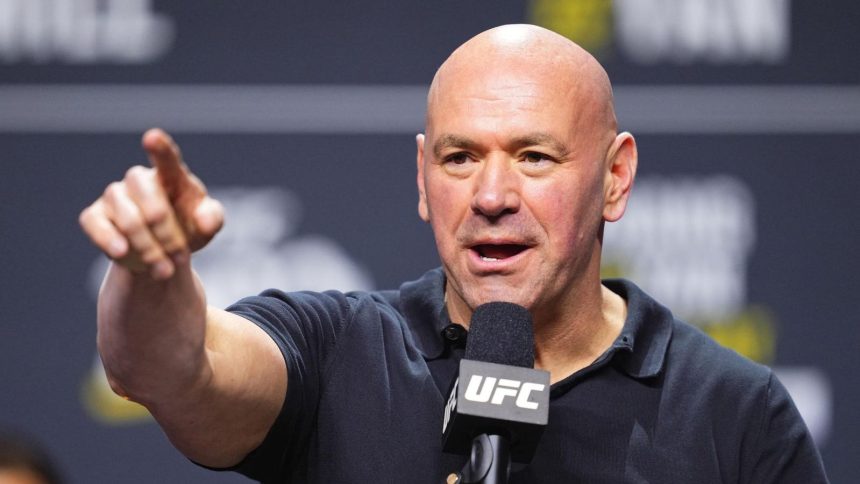The landscape of mixed martial arts (MMA) is experiencing a period of significant flux, with the acquisition of Bellator by the Professional Fighters League (PFL) creating ripples of uncertainty and frustration among prominent fighters. Patricio “Pitbull” Freire, the reigning Bellator featherweight champion, finds himself at the center of this storm, his career stalled by the organizational upheaval. Having not fought since March, Pitbull’s inactivity underscores the challenges faced by fighters caught in the crosshairs of corporate maneuvering. His public expression of discontent, coupled with his stated desire to join the UFC, highlights the precarious position of many Bellator fighters as the PFL grapples with the integration of the two promotions. The situation is further exacerbated by the PFL’s reported financial difficulties, which have led to canceled events and further compounded the inactivity of fighters like Pitbull. This brewing discontent has captured the attention of UFC President Dana White, who acknowledges the potential for a fighter exodus from the PFL and the UFC’s possible role in absorbing some of this displaced talent.
Pitbull’s predicament epitomizes the broader challenges facing Bellator fighters in the wake of the PFL acquisition. The initial strategy of maintaining separate brands appears to be giving way to a phasing out of the Bellator name, creating ambiguity about the future for fighters contracted under the Bellator banner. This uncertainty is mirrored in the experiences of other Bellator champions, such as Corey Anderson, who has also voiced his frustrations publicly. The lack of clear communication and the absence of scheduled fights have left these athletes in limbo, unable to capitalize on their prime fighting years. The silence surrounding their future underscores the vulnerability of fighters within the evolving promotional landscape, highlighting the need for greater transparency and fighter advocacy.
The PFL’s reported financial struggles further complicate the situation, adding a layer of instability to an already uncertain future for Bellator fighters. Canceled events and the inability to schedule fights for prominent champions like Pitbull and Anderson suggest a deeper financial strain within the organization. This financial precariousness raises questions about the PFL’s ability to honor existing contracts and provide competitive opportunities for its roster of fighters. As White alluded to, the combination of organizational change and financial instability creates a breeding ground for fighter discontent and a potential exodus of talent seeking more stable and lucrative opportunities.
The potential migration of Bellator fighters to the UFC presents a compelling narrative for the MMA world heading into 2025. While Pitbull, at 37, is arguably past his prime, his name recognition and championship pedigree still hold intrigue for fight fans. The prospect of him facing UFC contenders, despite the perceived disparity in competitive levels, could generate significant interest. Furthermore, the availability of other talented Bellator fighters, such as Corey Anderson and Patchy Mix, could reshape the competitive landscape of various UFC weight classes. The UFC’s potential absorption of these fighters could inject new life into existing divisions and create fresh matchups for fans.
Beyond the immediate implications for individual fighters, the PFL-Bellator merger and its subsequent challenges raise broader questions about the future of MMA promotions. The industry’s increasing consolidation, driven by financial pressures and the pursuit of market share, has the potential to create both opportunities and challenges for fighters. While larger organizations can offer greater financial stability and broader exposure, they also risk marginalizing smaller promotions and limiting fighter autonomy. The unfolding situation with the PFL and Bellator serves as a cautionary tale, highlighting the need for a balanced approach that protects the interests of fighters while fostering a competitive and dynamic MMA landscape.
In addition to the ongoing saga surrounding the PFL and Bellator, other storylines continue to unfold within the UFC, including the fallout from UFC 310. Shavkat Rakhmonov’s victory over Ian Machado Garry has sparked discussion about their future matchups. Chael Sonnen, a respected voice in the MMA community, has suggested Rakhmonov should face Belal Muhammad, a fight originally scheduled for UFC 310 but postponed due to Muhammad’s injury. Sonnen also proposed a compelling matchup between Garry and Leon Edwards, the former welterweight champion. These potential fights underscore the dynamism of the UFC and its ability to generate exciting matchups even as the broader MMA landscape undergoes significant transformation. The interplay of these various narratives, from the struggles of Bellator fighters to the strategic matchmaking within the UFC, promises to make 2025 a pivotal year for the sport.



